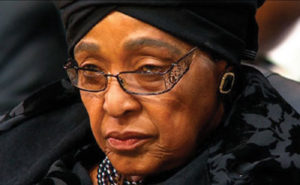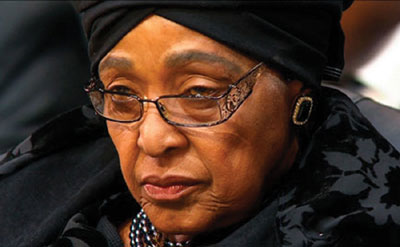 Winnie Mandela dies. Here are five things to know about the anti-apartheid icon
Winnie Mandela dies. Here are five things to know about the anti-apartheid icon
By Don Sweeney
Winnie Madikizela-Mandela, the former wife of Nelson Mandela and an anti-apartheid figure in her own right, has died at age 81.
“She died after a long illness, for which she had been in and out of hospital since the start of the year,” said family spokesman Victor Dlamini said in a statement, reported the BBC. “She succumbed peacefully in the early hours of Monday afternoon surrounded by her family and loved ones.”
- ‘Mother of the Nation’
Winnie Madikizela-Mandela, known in South Africa as the “Mother of the Nation” for her struggle against white minority rule, was married to Nelson Mandela for 38 years, including the 27 years he was imprisoned on Robben Island near Cape Town, according to CNN. The couple had two daughters together before divorcing in 1996, two years after Nelson Mandela became South Africa’s first black president.
“She kept the memory of her imprisoned husband Nelson Mandela alive during his years on Robben Island and helped give the struggle for justice in South Africa one its most recognisable faces,” the Africa National Congress said in a statement, reported National Public Radio.
- Anti-apartheid crusader
While Nelson Mandela served his long prison sentence, Madikizela-Mandela also faced detention by South Africa’s apartheid government for her campaign to end white minority rule, reported The Times of London. She was placed after house arrest and at one point banished to a small town in the Orange Free State, a province of South Africa.
In 1969, she was incarcerated for 18 months in solitary confinement at Pretoria Central Prison, where she was beaten and tortured.
“My whole body was badly swollen, I was passing blood,” she wrote in her memoir, reported The Washington Post. “The whole experience is so terrible, because I had left little children at home in bed and I had no idea what had happened to them.”
- Tainted by scandal
In 1991, Madikizela-Mandela was convicted of ordering the 1988 kidnapping of four youths in Soweto, South Africa, reported The New York Times. Her followers carried out the kidnappings to try to discredit a Methodist minister at whose home the youths had been staying. The body of one, a 14-year-old, was found with his throat cut. Madikizela-Mandela was sentenced to six years in prison for kidnapping but South Africa’s highest appeals court trimmed the sentence to fines and time served.
She was expelled from the United Democratic Front, an umbrella group of organizations fighting apartheid, and separated from Nelson Mandela in 1992, with their divorce becoming final in 1996.
Named deputy minister of arts, culture, science and technology in 1994 by Nelson Mandela following his election as South Africa’s first black president, Madikizela-Mandela was later forced to resign amid allegations of influence peddling, bribery and misuse of government funds.
- Return to politics
In the late 2000s, Madikizela-Mandela re-emerged as one of the nation’s most popular politicians, reported ABC News, serving as a member of parliament. In 2016, she received the Order of Luthuli in Silver for her contribution to the fight against apartheid.
- Her legacy
Archbishop Emeritus Desmond Tutu, also an icon of the anti-apartheid movement, released a statement Monday praising “Mama Winnie” and wishing that she might “rest in peace and rise in glory,” according to CBS News.
“She refused to be bowed by the imprisonment of her husband, the perpetual harassment of her family by security forces, detentions, bannings and banishment,” Tutu said. “Her courageous defiance was deeply inspirational to me, and to generations of activists.”
Actor Idris Elba, who played Nelson Mandela in the film “Long Walk to Freedom,” tweeted: “Rest in peace Mama Winnie. My heart is heavy right now. You lived a full and important life contributing to the liberation of a nation by force and ACTUAL ACTIVISM.”

